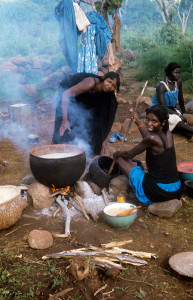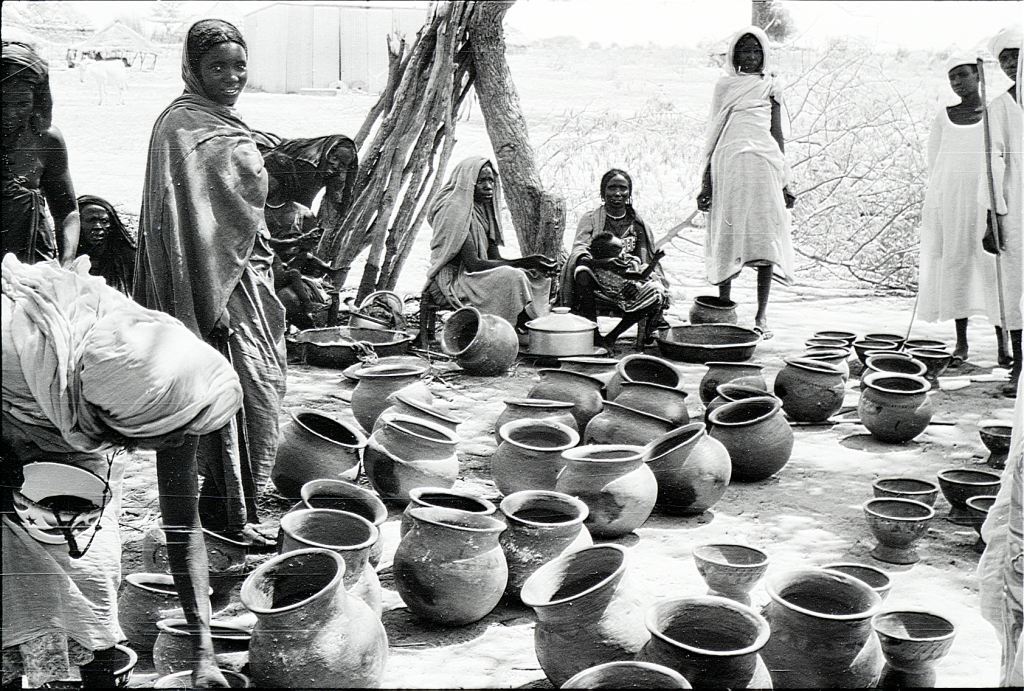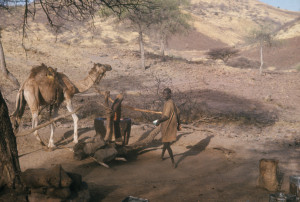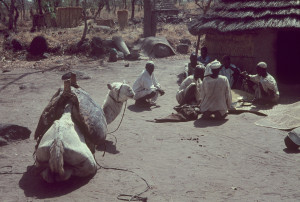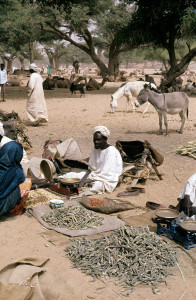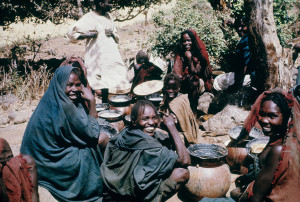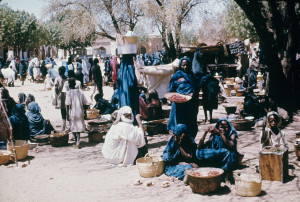Fur women making porridge (Fur “nung”, Arabic “asida”). Millet products like porridge and beer constitute the staple food among the Fur. They are products that belonged to the domestic sphere and should not be transacted in the market. Subjecting them to sale in the market was categorized as shame (Fur: “ora”) like selling sex.
Kebe village, Western Darfur.
Photo: Gunnar Haaland, 1965
